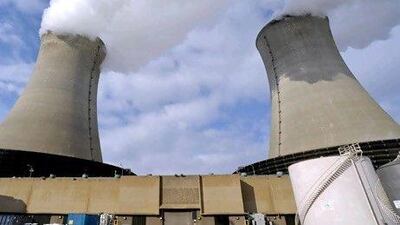It was to be the gold standard: a promise from the UAE to the US that the Emirates would not enrich or reprocess nuclear fuel, a shining example in the Middle East of non-proliferation and international cooperation.
Three years later, the UAE remains the only nation that has signed on to such conditions, and the US is facing the reality that other nations are less willing to adopt similar terms in nuclear cooperation agreements, the bilateral treaties that pave the way for knowledge and technology exchange in atomic energy.
In trying to balance trade and security interests in negotiations with nations including Jordan and Vietnam, the US is setting aside the gold standard in favour of a "case by case" approach - a strategy that has ignited a debate in Washington and risks undoing its progress in formulating treaties such as the one signed with Abu Dhabi.
"They got an agreement with the UAE fairly quickly and painlessly and they were riding the crest of a wave," said Mark Hibbs, a senior associate at the Carnegie Endowment for International Peace. "They saw that as something they could generalise. They were premature in that conclusion."
As developing nations race towards nuclear power, the US is left with a quandary. On one hand, offering more flexible nuclear cooperation agreements increases the chances that other nations will accept them and give US atomic providers an entry into foreign markets.
On the other hand, the gold standard sets an example of non-proliferation at a critical moment when the West is increasing pressure on Iran to abandon its suspected atomic weapons programme.
"The UAE approach for developing a nuclear energy programme with the highest standards of non-proliferation has been well recognised internationally as a model in this area that could allow for other countries to benefit from nuclear energy without jeopardising the non-proliferation regime," said Hamad Al Kaabi, the UAE's permanent representative to the International Atomic Energy Agency, the UN nuclear watchdog.
The debate has grown louder in Washington as the US nears agreements with Jordan, which aims to be the second Arab nation with nuclear power, and Vietnam, whose negotiations will set the tone for talks with South Korea when its current treaty expires.
A letter from the US president Barack Obama's energy and security officials to Congress last month argued that a "case-by-case" approach would give the US a window into new nuclear nations' intentions and help to keep US market share from eroding.
"We believe that dropping this standard is a prescription for nuclear proliferation mischief that will only embolden Iran and other potential nuclear weapons-seeking states," 20 congressmen argued in a public response to Mr Obama.
Once accounting for half of the world nuclear market, the US now controls only a fifth because of increasing competition from Russian, French and South Korean providers.
"One of the problems here is that the United States does not have the lead in this technology any more," Mr Hibbs said. "In the future they'll be getting equipment from India, they'll be getting equipment from China. This is the future, the United States knows that. People in the US who are smart want to basically rebalance our negotiations with countries worldwide, where they know in 20 years there will be other players in the market."
Jordan is choosing between three technologies for its first reactor - none of them American - and it is happy to proceed without a US agreement, said Khaled Toukan, the chairman of the Jordan Atomic Energy Commission.
"We are willing to sign an agreement if it is a standard agreement," said Mr Toukan. "Frankly speaking, we don't see a need for an agreement with the US with the present gold standard. It is good to have this agreement technically and politically, but at the moment I don't see in the near future us signing this agreement."
US officials were in Amman this month to continue negotiations that began four years ago. If the talks result in an agreement that grants Jordan the possibility of enrichment or reprocessing, the UAE would have the right to renegotiate its own terms, according to the 2009 agreement it signed.
"There are ways to negotiate the problem without having to throw the baby out with the bathwater," Mr Hibbs said.
"It's not a matter of proliferation or non-proliferation. It's about sitting down with partners that is in a way a compromise - but it's a compromise that shouldn't be too difficult to reach."
twitter: Follow our breaking business news and retweet to your followers. Follow us

